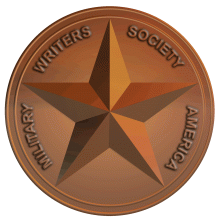For the Fatherland
|
Book Information: |
Cover: |
Author's Summary
Growing up in Germany in the 1930s, Kurt Schultheiss was like the other kids in his neighborhood: rambunctious, inquisitive, and the center of his parents' world. With his blond hair and blue eyes, he was also the picture of Aryan purity, a poster child for the band of "magnificent youngsters" with which Adolf Hitler plotted to build his "new world." As Hitler's power grew, he created the Hitler Youth, a breeding ground for the Nazi SS. As members of the Hitler Youth, Kurt and his friends enjoyed camping, weapons training--and complete indoctrination into the Nazi philosophy of world domination. Eventually Kurt became part of the infamous Einsatzgruppen, a group notorious for atrocities committed against Jews and Russians at the German Eastern Front. In this captivating novel, an elderly Kurt looks back on his life and struggles to find atonement for the terrible sins of his youth, offering in the process his explanation for how youthful potential can go so terribly wrong.
MWSA Review
MWSA 2010 Bronze Medal for Fiction, Historical

One of my most personally prized books and which I refer to often is John Toland's Hitler. When I first read it I was struck by Toland's attention to historical accuracy and his scrupulous even handedness. He never made a single excuse for the Nazi mass murderer, but his biography put the crazed Austro-German in context. Hitler, Toland showed, was much more than a madmen, a crazed genius and a psychotic � he was surrounded by people who in their haste to curry favor were even crazier. It was groupthink gone wild and bizarre. Hitler came away looking pathetic, his career a lesson for the present as well as an eye into the worst in our natures.
Walter Zapotoczny's For the Fatherland does much the same for all those Germans who willingly carried out the insane policies of their Leader, putting aside common decency and their own inherent humanity.
Told through the flashback recollection of Kurt Schultheiss, an elderly veteran of the SS, Zapotoczny paints a compelling, frightening picture of a whole society gone mad.
The blonde haired blue-eyed Kurt grew up in the 1930s and was caught up in the maelstrom of Hitler's Germany. Like many other youth his age he became a member of the Hitler Youth and amidst the simple pleasures and joys of childhood and young teenage years -- camping, singing, and learning new physical and mental skills, was indoctrinated into a belief system that portrayed a new Germany the despondent populace could believe in and embrace.
Kurt was only one of millions caught up in this perversion of the truth. Germans, he was taught were a superior race. The rest of the world, especially Jews and blacks were inferior. When Jesse Owens won his storied gold medals at the 1936 Berlin Games it was not because he was better than the other competitors, Kurt and his friends assured themselves, it was because he was given drugs to improve his performance -- no Schwartzer could possibly defeat a true German.
As the years pass and World War II erupts, Kurt is witness to some of the most dehumanizing and despicable acts in recorded history, and a party to some of them. His ability to rationalize this sort of brutality, hatred and cruelty in the name of the nation is mind-boggling -- and is a belief he carries to the very end of the novel.
Zapotoczny has written more than a novel. He has written a cautionary tale of how extremism and a simplistic world view can take otherwise ordinary people and make them commit, overlook and justify extraordinary evil.
When Nobel Prize winning author Sinclair Lewis wrote his frightening novel, It Can-t Happen Here, he was writing about a country in the midst of a national identity crisis, financial meltdown who found solace in a charismatic ideologue whom they allowed to destroy their freedoms in the name of "liberty" and "right thinking." Truth in Lewis" America bore no resemblance to the pronouncements of extremists who thought liberty was not universal and that freedom was confined only to those who agreed with them.
Zapotoczny echoes that sentiment in For the Fatherland and makes clear that the lessons of Hitler's Germany are just as worth learning today as when Lewis wrote. In the epilogue he writes: "We must always be vigilant of extremism and those who would profess to make the next new world."
If you only read one novel this year, make sure you read For the Fatherland. Then turn on the news and listen to the commentators on the radio. Be afraid. Be very afraid.
Reviewed by: David Tschanz (2010)



